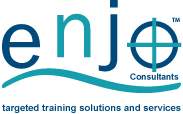ENJO Consultants Update
Navigating the New SETA → QCTO Landscape
Welcome Note
The skills development environment in South Africa is undergoing a major transformation. At ENJO Consultants, we are committed to keeping you informed so your organisation—and your learners—stay ahead. This update highlights the key changes in the SETA / QCTO environment and how it affects training providers, employers, and learners.
What Is Changing: From SETA to QCTO Oversight
As of 30 June 2024, SETA accreditation of occupational qualifications was officially replaced by QCTO accreditation. RSM Global+2iLearn+2
Going forward, the Quality Council for Trades and Occupations (QCTO) takes responsibility for the design, registration, quality assurance, assessment, and certification of occupational qualifications.
SETAs are still part of the ecosystem but now serve as Development Quality Partners (DQPs) or Assessment Quality Partners (AQPs), aligning with QCTO’s mandate rather than having independent accreditation authority.
Key Implications for Providers, Employers & Learners
For Training Providers / SDPs
You must be accredited by QCTO (not just the SETA) to deliver and assess occupational qualifications.
Assessment delivery now includes stronger emphasis on External Integrated Summative Assessments (EISA), requiring approved assessment centres.
Legacy SETA qualifications are being phased out. After the enrolment cutoff, they’ll be regarded as “legacy qualifications”.
Expect new accreditation tariffs and fee structures aligned with QCTO requirements.
For Employers & B-BBEE Stakeholders
B-BBEE Skills Development claims remain possible—but only if training is through QCTO-registered programmes, delivered via accredited providers, and meets the new requirements.
Legacy SETA programmes lose full recognition after their phase-out; companies relying on them may risk losing skills spend points.
Workplace host sites must secure workplace approval and ensure mentors and assessors are suitably qualified under the new regime.
Companies should review WSP / ATR planning, ensuring alignment with QCTO-registered qualifications rather than legacy SETA ones.
For Learners / Candidates
New enrollment in SETA occupational qualifications is no longer permitted. From 1 July 2024 onward, learners must enroll in QCTO-accredited qualifications.
Learners already enrolled in legacy SETA programmes before the cutoff have until 30 June 2027 to complete them. R
There is now a three-part qualification model: knowledge (theory), practical skills, and workplace experience.
Learners will need to pass the EISA (External Integrated Summative Assessment) to obtain their occupational certificate.
What ENJO Consultants Is Doing
At ENJO Consultants, we are adapting swiftly to support you through this transition:
Alignment of Our Programmes
We are revising all training curricula to ensure they meet QCTO’s design principles, modular structure, and assessment requirements.Capacity Building & Support
We provide training, workshops and consultancy for Skills Development Providers (SDPs), employers, and HR teams so they understand and navigate the new policies and processes.Accreditation Advisory
We guide organisations in applying for QCTO accreditation, workplace approval, and assessment centre registration where needed.EISA Preparation
Our course delivery includes components to prepare learners for the external summative assessments, with mock assessments, evidence portfolios, and readiness testing.B-BBEE Strategy Alignment
We assist companies in revising their Skills Development plans (WSP/ATR) and ensure claims are valid under the new QCTO regime.
Action Steps You Should Take
Audit any current training programmes and check their accreditation status (SETA vs QCTO).
Transition legacy programmes to QCTO-aligned ones or phase out where applicable.
Engage with your provider or consultants to secure QCTO accreditation or approval.
Ensure workplace hosting entities are QCTO compliant (mentors, facilities, approval).
Educate your teams—HR, L&D, operational managers—about the new requirements and timelines.
Update your Skills Development / B-BBEE strategies to reflect QCTO compliance.
Stay Informed — Upcoming Dates & Deadlines
| Date | Milestone |
|---|---|
| 30 June 2024 | Last enrolment date for SETA occupational qualifications |
| 1 July 2024 | Full transition to QCTO oversight begins |
| 30 June 2027 | Deadline for completing legacy SETA programmes |
Final Word
The shift from SETA to QCTO is not just a bureaucratic change—it is a strategic realignment intended to raise the bar on quality, relevance, and accountability in skills development.
At ENJO Consultants, we view this as an opportunity: our clients will benefit from sharper standards, more credible qualifications, and alignment with national and sector priorities. But successful navigation will require proactive planning, collaboration, and capacity building.
